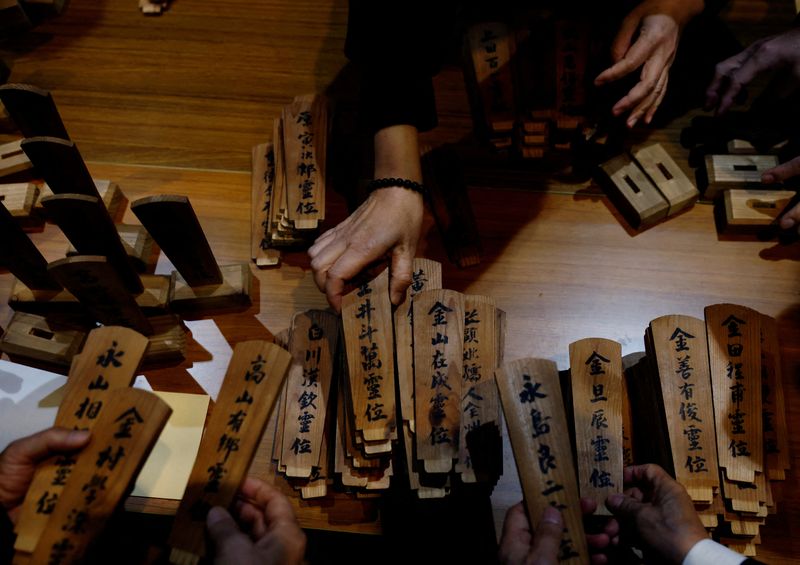SEOUL/TOKYO (Reuters) - South Korea and Japan may be near resolving a dispute over colonial-era forced labour that has overshadowed political and trade relations between the two neighbours, with media reports saying Seoul could announce plans on Monday.
The South Korean government plans to announce on Monday morning its solution to the historical and legal dispute over compensating people forced to work under Japan's 1910-1945 occupation of Korea, Japan's Kyodo news reported, citing unnamed diplomatic sources.
The labour dispute and one over women forced into Japanese military brothels have bedevilled ties between the two pivotal U.S. allies for years.
South Korea's foreign ministry, asked about the reported agreement, said negotiations were ongoing.
"The government is continuing to consult in various ways between diplomatic authorities at all levels in order to come up with a reasonable solution that meets the common interests of Korea and Japan as soon as possible," it said in a statement.
Japan's Cabinet Office and Foreign Ministry did not immediately respond to phone and email requests for comment.
Relations plunged to their lowest point in decades after South Korea's Supreme Court in 2018 ordered Japanese firms to pay reparations to former forced labourers. Fifteen South Koreans have won such cases, but none has been compensated.
The row spilled over into a trade dispute. Japan has maintained the compensation issue was settled under earlier treaties.
'VOLUNTARY' FUND, SUMMIT
Seoul unveiled a plan in January to compensate former forced labourers through a South Korean public foundation. The proposal sparked backlash from victims and their families because it did not include contributions from Japanese companies, including those ordered by South Korean courts to pay reparations.
Japan could allow its companies to "voluntarily" contribute to the foundation, and the two governments are aiming for South Korean President Yoon Suk-yeol to visit Japan this month, Kyodo reported.
South Korea's Yonhap news agency, citing unnamed government sources, said Seoul and Tokyo had tentatively agreed to create a "future youth fund" to sponsor scholarships for students as part of the deal.
The fund would be jointly formed by the Federation of Korean Industries, South Korea's big business lobby, and its Japanese counterpart, Keidanren, the report said.
Japan's Nikkei reported that a Korean foundation would pay compensation on behalf of Japan, and the Japanese side would acknowledge expressions of apology and reflection made by previous administrations.
Prime Minster Fumio Kishida plans to say he is extending past statements on wartime forced labour, which include an apology for Japan’s colonialism, Japan's Yomiuri reported on Saturday.
The newspaper said Tokyo could lift restrictions on exports of key electronics components to South Korea, as part of a deal for Seoul to withdraw its complaint to the World Trade Organization over the trade dispute.

The conservative Yoon, who took office in May, has vowed to improve ties with Japan. In September, he met Kishida in the two countries' first summit since 2019.
On the dispute over Korean women forced into wartime brothels, euphemistically called “comfort women”, a 2015 agreement that was supposed to "irreversibly" resolve the claims fell apart after backlash from many of the victims.